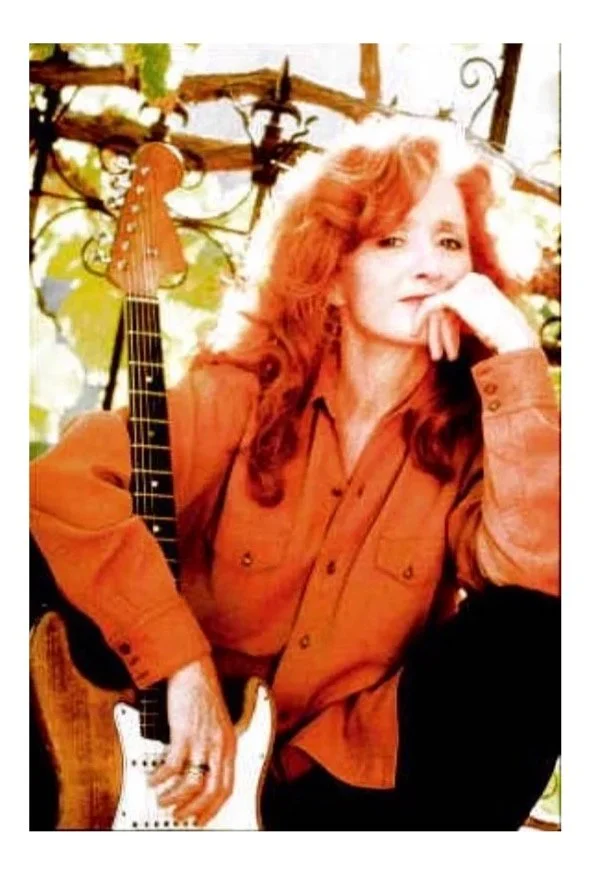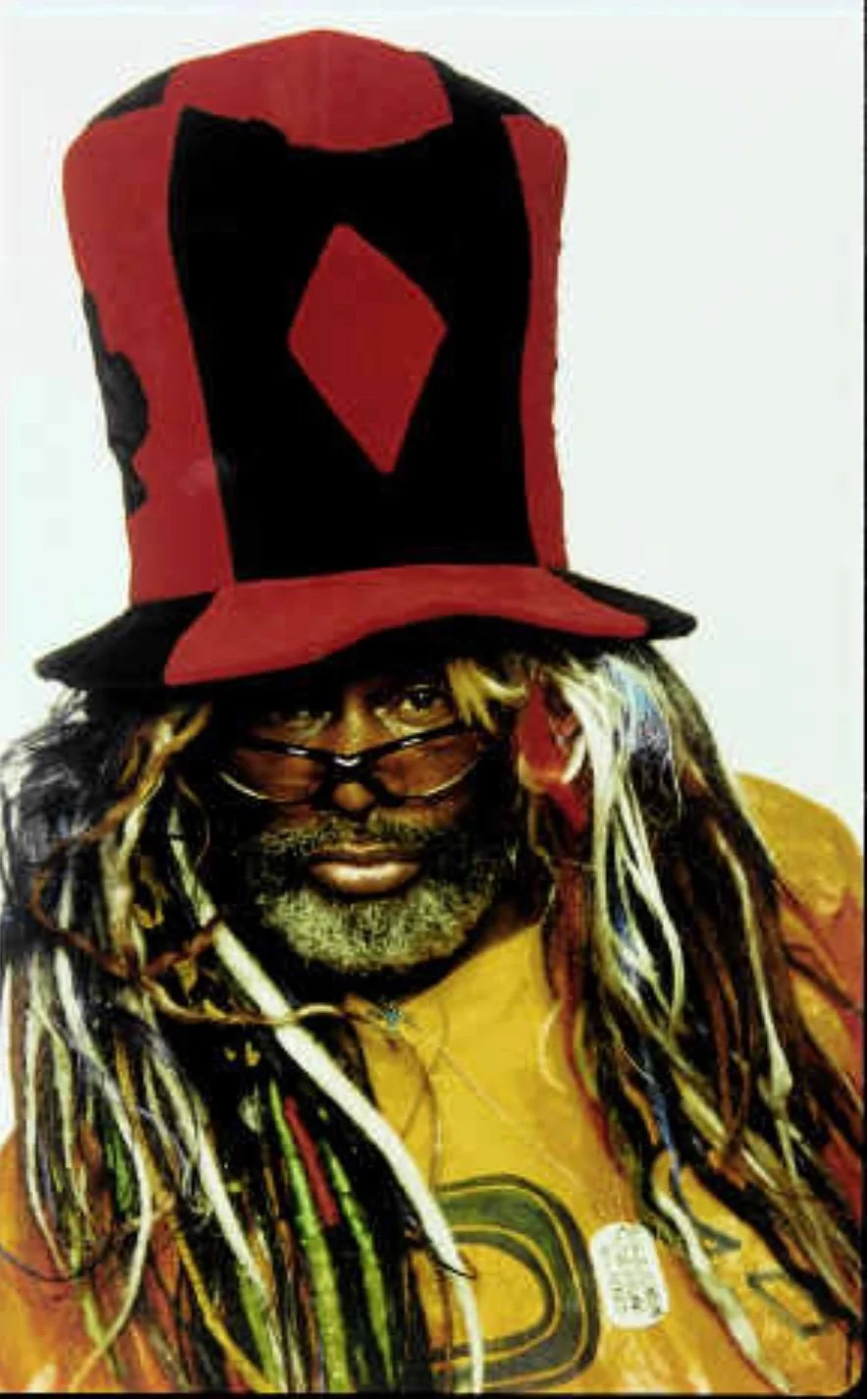Bonnie Raitt Gettin’ Better With Time
Originally published in the Herald-Times, October 15, 2000. Reprinted here with permission.
Bonnie Raitt relishes the long road that snakes and turns and carries her into uncharted territory. Like the one that transformed her from a little-known coffeehouse blues singer into a multi-Grammy award winner whose success came in the Nick of Time.
There’s the path that connects her Quaker roots to a life of social activism in environmental protection, women’s rights, and most recently, the plight of Native Americans.
It’s been an amazing ride so far, she’ll tell you. But with 15 albums under her belt and nearly 30 years in the music business, there’s so much more waiting around the bend.
You can hear the anticipation in her voice when she talks about the recent Indigo Girls “Honor the Earth Tour,” which took her — along with Joan Baez and the rock band Indigenous — into Montana to encourage Native American voter registration.
You hear it when she mentions her participation in the American Masters Series’ tribute to Muddy Waters — a project designed to educate children on the importance of blues in American history — and even more so when she talks about the Rhythm and Blues Foundation she helped found to improve the financial condition, recognition, and royalty rates of a generation of R&B pioneers.
And it’s especially apparent in her music, which changes in nuance but remains as soulful and bluesy as ever. There’s a vibrance to her voice — a slow-burning passion throughout her. And musically there’s greater depth, resonance, and sexiness with each passing project.
“I’ve got a full life,” she says of a schedule that sounds nerve-shattering in its demand. “It’s not hectic, just full. I do lots of benefits and when I start recording again next year, I’ll be busy with that. I do it because I love my job.”
Even discussions of her recent induction into the Rock and Roll Hall of Fame take a back seat to things more recent.
“That was last spring,” she says, brushing it aside like old news.
She’s more interested in discussing her upcoming concert in Bloomington — and a meeting that didn’t quite happen.
“I was so heartbroken,” Raitt says of missing Zimbabwean pop star Oliver Mtukudzi during his recent U.S. tour. He was scheduled to perform at Bloomington’s Lotus Festival but returned home early after his mother’s death.
Still, Mtukudzi’s presence lives on in her music. Her latest CD, Fundamental, ends with a track called “One Belief Away,” inspired by Mtukudzi’s song “What’s Going On.”
“My bass player Hutch Hutchinson played me this song on the bus,” she recalls.
“I don’t know if you had a song when you were a kid that you played over and over... like when I was 15, I played ‘Satisfaction’ by the Rolling Stones over and over again. Well, this song by Oliver Mtukudzi was just like that. I fell so in love with it.”
Raitt reached out to Mtukudzi, asking to base a song on his music. He agreed.
“It was just very insinuating the way the collaboration happened long distance,” she says. “And he was a real sweetheart to say, ‘You know, I love what you did with it.’”
They met at the W.O.M.A.D. Festival in Seattle and became fast friends.
“I respect his music and who he is so much,” she says softly.
That same spirit of connection drives much of what she does — from her musical collaborations to her activism to the producers she chooses.
“I loved working with Don Was and Ed Cherney on my last four albums,” she says, “but I wanted a change — something different for me and for the fans.”
For Fundamental, she worked with Mitchell Froom and Tchad Blake (of Sheryl Crow and Los Lobos fame). The result was rawer and more textured.
One standout track is “Cure for Love,” written by David Hidalgo and Louis Perez of Los Lobos.
“That’s Los Lobos playing on it,” she says excitedly. “I’m playing guitar but David’s playing almost all the other guitars and the bass on it.”
Another favorite is “Spit of Love,” a gritty, honky-tonk blues song she wrote herself.
“It’s fierce and came out of an acute bunch of feelings,” she says. “Not soft and lyrical like ‘Nick of Time,’ but equally effective.”
Raitt will offer many of these tracks, along with fan favorites, when she performs at Indiana University Auditorium on Tuesday at 7:30 p.m.
Then it’s off again — to the next stage, the next cause, the next adventure.
Blog Post Title Two
It all begins with an idea.
It all begins with an idea. Maybe you want to launch a business. Maybe you want to turn a hobby into something more. Or maybe you have a creative project to share with the world. Whatever it is, the way you tell your story online can make all the difference.
Don’t worry about sounding professional. Sound like you. There are over 1.5 billion websites out there, but your story is what’s going to separate this one from the rest. If you read the words back and don’t hear your own voice in your head, that’s a good sign you still have more work to do.
Be clear, be confident and don’t overthink it. The beauty of your story is that it’s going to continue to evolve and your site can evolve with it. Your goal should be to make it feel right for right now. Later will take care of itself. It always does.
Blog Post Title Three
It all begins with an idea.
It all begins with an idea. Maybe you want to launch a business. Maybe you want to turn a hobby into something more. Or maybe you have a creative project to share with the world. Whatever it is, the way you tell your story online can make all the difference.
Don’t worry about sounding professional. Sound like you. There are over 1.5 billion websites out there, but your story is what’s going to separate this one from the rest. If you read the words back and don’t hear your own voice in your head, that’s a good sign you still have more work to do.
Be clear, be confident and don’t overthink it. The beauty of your story is that it’s going to continue to evolve and your site can evolve with it. Your goal should be to make it feel right for right now. Later will take care of itself. It always does.
Blog Post Title Four
It all begins with an idea.
It all begins with an idea. Maybe you want to launch a business. Maybe you want to turn a hobby into something more. Or maybe you have a creative project to share with the world. Whatever it is, the way you tell your story online can make all the difference.
Don’t worry about sounding professional. Sound like you. There are over 1.5 billion websites out there, but your story is what’s going to separate this one from the rest. If you read the words back and don’t hear your own voice in your head, that’s a good sign you still have more work to do.
Be clear, be confident and don’t overthink it. The beauty of your story is that it’s going to continue to evolve and your site can evolve with it. Your goal should be to make it feel right for right now. Later will take care of itself. It always does.
George Clinton and the P-Funk All Stars
It all begins with an idea.
*Originally published in The Herald-Times on October 8, 1999. Reprinted here with permission.*
He’s a '70s and '80s rhythm and blues icon, often called the Prince of Urban Funk. An inductee into the Rock & Roll Hall of Fame and the mastermind behind Parliament and Funkadelic, George Clinton isn’t resting on his laurels.
The fifty-something musician, songwriter, and producer was preparing for the next millennium with music that expressed a “shift in paradigms,” he said. And he had a lot more funk to go around.
“I don't know what you'd call it,” Clinton said of his new music. “We're going to have techno, funk, rock ’n’ roll and blues all mixed together. You'll be able to taste the funk and feel the funk—like virtual funk reality.”
Funk, a rock- and soul-infused sound that evolved in the late ’60s, is more improvisational than soul and blends blues, jazz, and R&B. Clinton and his P-Funk All Stars were bringing that funk to Bloomington, Indiana, for a show at Mars nightclub.
So far, the vintage funk remained. It was the music that made Parliament and Funkadelic two of the hottest bands of their era—essentially one group of musicians split across two identities.
“We had more horns and guitars in Parliament with vocals and big harmonies,” Clinton said. “The Funkadelics had a more jazzy element to them—more instrumental.”
Many fans didn’t realize Clinton was the creative force behind both groups, as albums often highlighted performers like Bootsy Collins, who became a star in his own right.
Clinton’s then-current release, Dope Dog, was a blend of driving rhythms, synthesized techno-soul, and hip hop—everything that placed his music on the cutting edge in the '80s.
His voice was an instrument in itself. Though not a conventional singer, Clinton’s bassy, Isaac Hayes–like voice spoke, rapped, and shouted through lyrics of spaceships, nuclear age fantasies, and, of course, funk.
In the early ’70s, Clinton created the voice of “Sir Nose” using an Echoplex to make his vocals sound submerged—cutting-edge at the time.
Parliament and Funkadelic scored many hits, but Atomic Dog (1983) became a massive success—an essential track at African American frat parties across the country.
Three albums later, he released Mothership Connection, another landmark record featuring Bootsy Collins. His concerts became theatrical events, complete with elaborate sets and a spaceship that descended onto the stage.
“We got slicker, but without suits,” he said. “We got Bootsy and Maceo [Parker, James Brown’s horn player]. We had outer space music—funky music with jazz overtones and with costumes and spaceships.”
Clinton’s influence grew from a deep well of creativity and self-expression, including his history as a hairdresser in New Jersey.
“My hairdressing gig gave me the freedom to look for a record deal,” he said.
He began in doo-wop, worked at Motown, and gradually carved his own genre-blending path. As the musical landscape evolved, Clinton adapted.
“I realized that you had to stay with the flow and come up with something new all the time,” he said. “The white groups were doing blues and rock ’n’ roll so I took the mid-tempo funky route. It’s the nasty one. The music was slow and bluesy but just enough groove that you wouldn’t stop dancing.”
Eventually, Clinton introduced the Mothership concept—a spaceship as both stage prop and metaphor.
“I had to put Black people in a place where nobody had ever seen them before,” he said. “That was outer space, as in W-E-F-U-N-K. We funk.”
By the ’80s, he’d moved into more electronic, hip-hop–influenced music, and his sound became some of the most heavily sampled in the business.
“We’ve been rehearsing for the millennium for all these years,” Clinton said. “My lyrics are going to be cryptic. It’s gonna have to be coded. Your butt will figure it out first. Once you learn to dance to it, it’ll be like Morse Code.”
Originally published in The Herald-Times.
Reporter Michelle Henderson covered major figures in music and the arts throughout her career in entertainment journalism.




